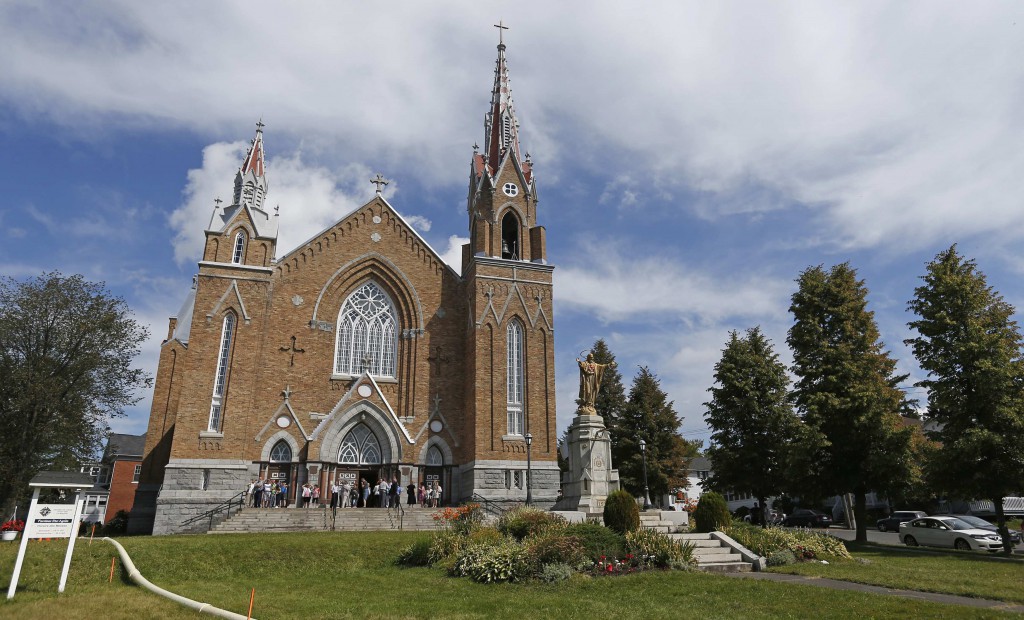
By Deborah Gyapong
Canada’s Catholic bishops have responded to Pope Francis’ call to minister to people on the margins of society while making efforts to ensure the Catholic Church is not marginalized.
“In virtue of our Gospel mandate, the church willingly goes to people on the margins to affirm their dignity and foster their full inclusion in society,” Archbishop Richard Smith of Edmonton, Alberta, president of the Canadian Conference of Catholic Bishops, said Sept. 23, the opening day of the bishops’ plenary assembly. “Yet as we go to the edge, many seek to keep us there, even push us over.
“The trends we see are worrying, yes, but hardly surprising,” Archbishop Smith told the more than 80 bishops from across Canada.
Archbishop Smith said he visited Kiev, Ukraine, in August for the consecration of a new cathedral of the Ukrainian Catholic Church. The event commemorated the 1,025th anniversary of the baptism of Grand Prince Vladimir, who declared Christianity the official religion in Kievan Rus, lands now making up parts of Belarus, Ukraine and Russia.
He described how the church in those lands “lived not just in the peripheries but was actually forced underground.” He said the event he attended was made possible by the “power of faithful witness.”
The example of Ukrainian Catholics “can serve as an inspiration to us in Canada,” Archbishop Smith said. “In admittedly different circumstances, the church is needing to confront in our own country pressures seeking to relegate us to the margins.
“This is turning the question of the relationship of the church to the periphery on its head,” he said.
In Quebec, citizens are debating the proposed Charter of Quebec Values, which would ban public sector workers from wearing any religious signs or attire except for discreet pieces of jewelry. It would, however, allow the crucifix to remain in the National Assembly of Quebec.
“The political parties have good intentions to leave the crucifix in the national assembly as a vestige of Quebec’s cultural and historical patrimony,” Archbishop Paul-Andre Durocher of Gatineau, Quebec, CCCB vice president, said in his homily during the opening Mass of the bishops’ meeting. For believers, he said, the crucifix serves as more than a reminder of the past, but a symbol of the life devoted to loving others that Christians are called to live.
Archbishop Durocher also quoted Pope Francis’ interview published Sept. 19 in Jesuit publications around the world and urged his fellow bishops to listen to the pontiff’s words: “The thing that the church needs most today is the ability to heal wounds and warm the hearts of the faithful; it needs nearness and proximity. I see the church as a field hospital after battle.”
Archbishop Smith recalled the excitement in Rome when Cardinal Jorge Bergoglio stepped onto the balcony after being elected pope, taking the name Francis.
“From that moment, and consistently ever since, he has summoned all of us to a ministry and mission that places at the center of our concern all those whom society relegates to the peripheries,” he said.
“Through his visits to youth in a Roman jail, to migrants on the Italian island of Lampedusa, or to the destitute of a Brazilian favela, the Holy Father is summoning the whole church to be embraced by the energy of divine love and to allow its dynamism to send us forth anew on mission,” said Archbishop Smith, who was to conclude his two-year term as CCCB president at the end of the assembly.
Archbishop Smith spoke of the lightning bolt that struck St. Peter’s Basilica in Rome the day Pope Benedict XVI announced his resignation from office and compared the election of Pope Francis as another “bolt from the blue.”
He said this year’s plenary assembly “will be largely shaped” by Pope Francis’ call to consider those on the margins. The plenary agenda included topics such as solidarity with First Nations people, protecting life and family, the ministry of the church’s development and relief organizations and upholding religious freedom. – CNS